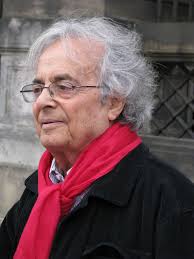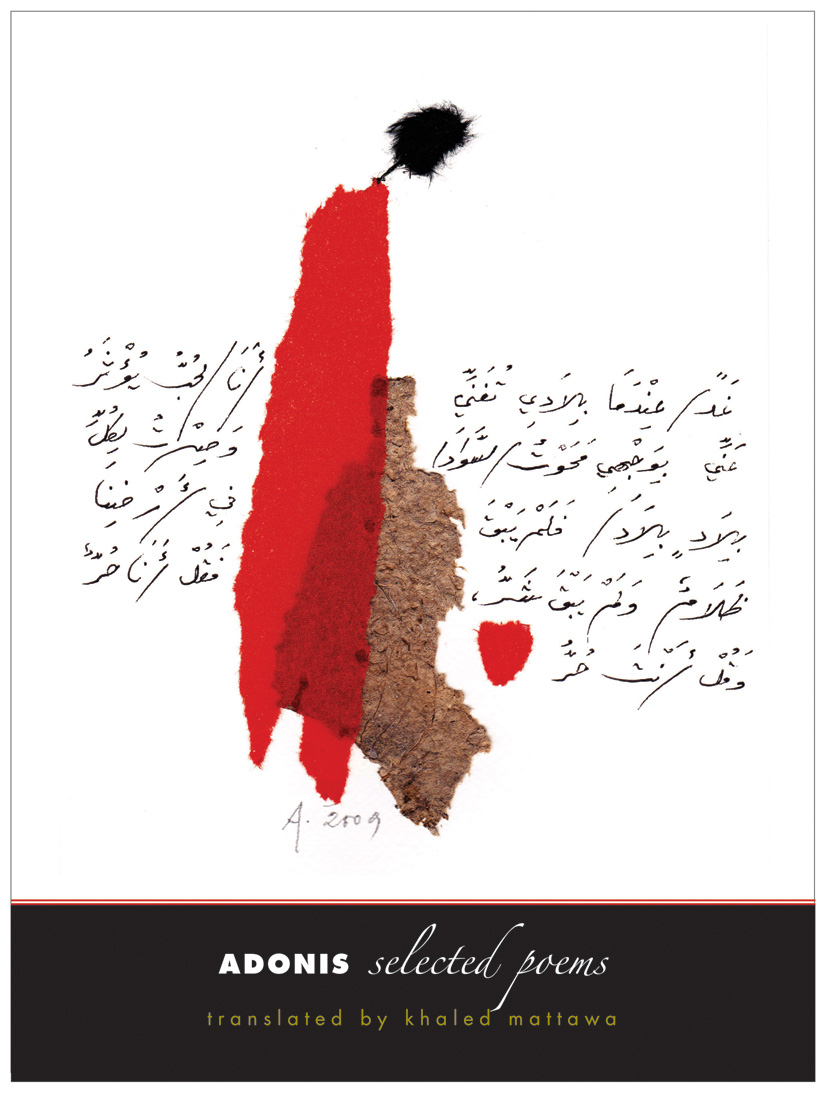From DePauw University's website: http://www.depauw.edu/academics/departments-programs/english/visitingwritersseries/fall-2015/
 | Poet AdonisSeptember 30, 2015 7: 30 pm Thompson Recital Hall (Green Center for Performing Arts) |  |
Adonis is the author of numerous collections of poetry, including Adonis: Selected Poems (2010, translated by Khaled Mattawa), Mihyar of Damascus: His Songs (2008), If Only the Sea Could Sleep(2002), and The Blood of Adonis (1971), which won the International Poetry Forum’s Syria-Lebanon Award. Adonis is also the author of the seminal work An Introduction to Arab Poetics(2003).
Adonis has won the first ever International Nâzim Hikmet Poetry Award, the Norwegian Academy for Literature and Freedom of Expression’s Bjørnson Prize, the Highest Award of the International Poem Biennial in Brussels, and the Syria-Lebanon Best Poet Award. In 1983 he was elected into the Stéphané Mallarmé Academy.
Breaking with the tradition of formal structure in Arabic poetry, Adonis experiments with free verse, variable meters, and prose poetry as he engages themes of exile and transformation, in a voice at once playful and prophetic. In a 2010 interview with Charles McGrath for the New York Times, Adonis stated, “I wanted to draw on Arab tradition and mythology without being tied to it,” adding, “I wanted to break the linearity of poetic text — to mess with it, if you will. The poem is meant to be a network rather than a single rope of thought.” Publishers Weekly described Adonis’ collection Mihyar of Damascus: His Songs as a “seminal, startling, volatile, founding work of Arabic-language modernism."
Adonis has taught at the Sorbonne, Damascus University, and the Lebanese University. He lives in Paris.
Adonis has won the first ever International Nâzim Hikmet Poetry Award, the Norwegian Academy for Literature and Freedom of Expression’s Bjørnson Prize, the Highest Award of the International Poem Biennial in Brussels, and the Syria-Lebanon Best Poet Award. In 1983 he was elected into the Stéphané Mallarmé Academy.
Breaking with the tradition of formal structure in Arabic poetry, Adonis experiments with free verse, variable meters, and prose poetry as he engages themes of exile and transformation, in a voice at once playful and prophetic. In a 2010 interview with Charles McGrath for the New York Times, Adonis stated, “I wanted to draw on Arab tradition and mythology without being tied to it,” adding, “I wanted to break the linearity of poetic text — to mess with it, if you will. The poem is meant to be a network rather than a single rope of thought.” Publishers Weekly described Adonis’ collection Mihyar of Damascus: His Songs as a “seminal, startling, volatile, founding work of Arabic-language modernism."
Adonis has taught at the Sorbonne, Damascus University, and the Lebanese University. He lives in Paris.
No comments:
Post a Comment